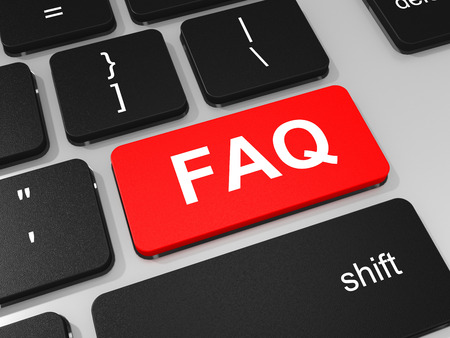I hope you find my writing and business tips and observations useful. My business and blog are dedicated to helping businesses communicate clearly and reach their potential.
Read, subscribe to my newsletter, enjoy!Tash
Why you should bother with an FAQ page
Not all websites have a FAQ page, and not everyone things positively about FAQs, but I think they are worth adding to a business website.
What does a FAQ page do?
 In very simple terms, it helps people find information about the business and/or products and services available.
In very simple terms, it helps people find information about the business and/or products and services available.
Some of the information just doesn’t fit very well elsewhere on the site and others bit are important enough to justify repeating.
I know when I am looking for specific information, I often go to the FAQ page, and the lack of a FAQ can be really frustrating as it leaves you searching the entire site.
How does it help a business to have a FAQ?
Having a FAQ page
- makes it easy and quick for customers to find information so they are more likely to buy
- means people find answers themselves instead of getting twenty calls a day about basic information – this saves the business time
- people are reassured that their question is answered and that the business is upfront about details
- is a central location for various facts that just don’t fit anywhere else
Of course, the FAQ has to be worth visiting or it can undo all the benefits – but we’ll cover what’s in a good FAQ page another time!
*Image courtesy of icreative3d at 123rf
Understanding bandwidth
A common thing people complain about when online is how long a web page takes to load. How many times have you given up waiting for a page to load or walked away and come back and the page is still only half loaded?
People are more likely to return to a site if the page loads efficiently and the content is worthwhile.
The term bandwidth describes the amount of data transferred to or from a website within a certain period of time. The bandwidth avilaable to a specific website depends on the hsoitng agreement in place, but will only allow a certain amount of data transfer in a specified time. So ultimately, the more information on a page, the longer the page will take to load.
When a web page is loaded into a browser it brings along with it all its content, that is the structural format code, the CSS instructing the browser how the content should look, the images, frames, text, and any other code that gives the page its content. Every single character and figure on a web page lengthens the time that the page takes to load; although individually they may be barely anything, they add up.
The average base of a web page should be about 30K and grow to be not much more than 60K. That is including all the graphics and text.
The main thing to remember here is that less is best, especially when web designing.

Recent Comments